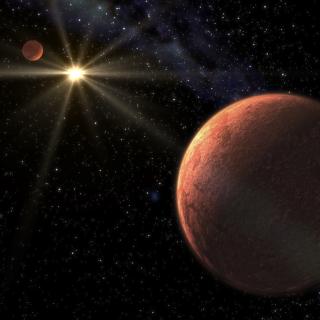Bibcode
Rebolo, R.; Villó, Isidro; Díaz-Sánchez, Anastasio; Pérez-Garrido, Antonio; Jódar, Esther; Pérez-Prieto, J. A.
Bibliographical reference
Monthly Notices of the Royal Astronomical Society, Volume 429, Issue 1, p.859-867
Advertised on:
2
2013
Citations
60
Refereed citations
54
Description
We present high-angular-resolution optical I-band imaging of 451 late K
to mid-M nearby stars. These observations have been performed with
Astralux and FastCam using the lucky imaging technique. We found 70
companions with separations between 0.1 and 3.5 arcsec, out of which 28
are new discoveries. We derive a total binary fraction of 20.3+
6.9- 5.2 per cent. Follow-up observations have been
carried out for 16 of these new binaries and all of them were confirmed
as physically associated systems. Parallaxes are available for 70 per
cent of the binary sample, providing reliable estimates of physical
separations. We have measured separations and position angles as an
initial stage for a systematic follow-up aimed to determine orbital
parameters.
Related projects

Very Low Mass Stars, Brown Dwarfs and Planets
Our goal is to study the processes that lead to the formation of low mass stars, brown dwarfs and planets and to characterize the physical properties of these objects in various evolutionary stages. Low mass stars and brown dwarfs are likely the most numerous type of objects in our Galaxy but due to their low intrinsic luminosity they are not so
Rafael
Rebolo López